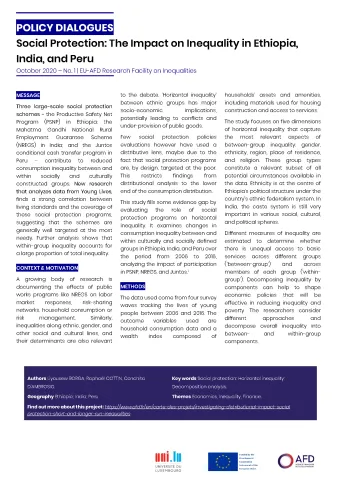Share the page
Social Protection: The Impact on Inequality in Ethiopia, India, and Peru
Published on

Three large-scale social protection schemes - the Productive Safety Net Program (PSNP) in Ethiopia; the Mahatma Gandhi National Rural Employment Guarantee Scheme (NREGS) in India; and the Juntos conditional cash transfer program in Peru – contribute to reduced consumption inequality between and within socially and culturally constructed groups. New research that analyzes data from Young Lives, a longitudinal study of the changing nature of childhood poverty, also finds a strong correlation between living standards and the coverage of these social protection programs, suggesting that the schemes are generally well targeted at the most needy. Further analysis shows that within-group inequality accounts for a large proportion of total inequality.
Useful Information
-
Authors
-
Liyousew BORGA, Raphaël COTTIN, Conchita D’AMBROSIO
-
Coordinators
-
Edition
-
1
-
Number of pages
-
2
-
ISSN
-
In process
-
Collection
-
Policy Dialogues
